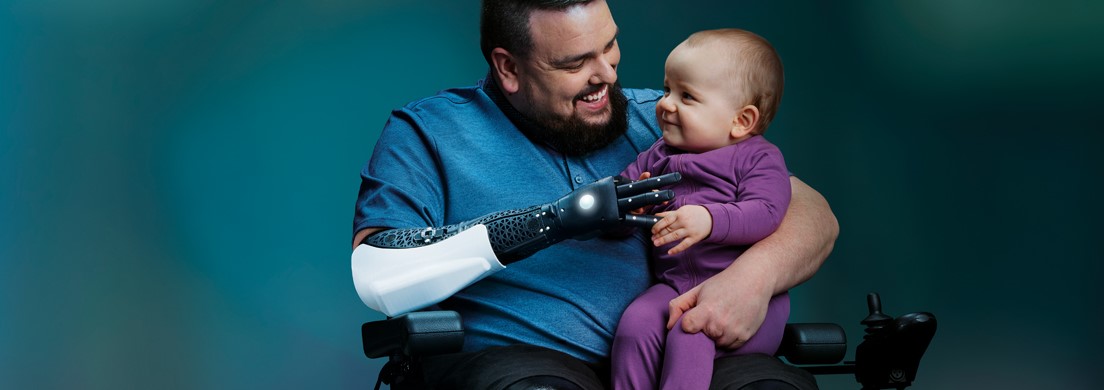The concept of the collaboration between Foresight and Williams Advanced Engineering (WAE) is a unique one. Foresight and WAE began working together in late November 2016 when the Foresight Williams Technology EIS Fund was launched. The collaboration was born on the premise of merging the investment expertise of Foresight along with the technical capabilities of WAE to try to deliver substantially better results for investors than would be possible if either respective company were working separately.
Foresight is an experienced investor in small and medium-sized UK companies and has been managing investments on behalf of retail clients for over 36 years. WAE is an award-winning technology and engineering services business originally spun out of the Williams Formula 1 team. The company provides world-class technical innovation, engineering, testing and manufacturing services to deliver energy-efficient performance to customers.
The capabilities of Williams Advanced Engineering's people in areas such as electrification, battery technology, aerodynamics and thermodynamics apply across all sectors, including automotive and motorsport to aerospace, defense or energy.
Since its launch, the FWT EIS fund has invested in over 20 early-stage companies with high growth potential, deploying over £34m to date. The collaboration between Foresight Group and WAE is also unique in the VCT marketplace. The strategy of using a technical partner alongside an investment manager in every aspect of the investment process to provide a competitive advantage is different and, we believe, compelling.
Please see below the details of an example case study:
Developer and manufacturer of the next generation of bionic limbs. Investment to support growth and scale the business.
| Name | Open Bionics Limited |
| Industry | Robotics Healthcare |
| FWT EIS Fund Commitment | £1.5m |
| FWT EIS Fund Ownership | 11.0% |
| Initial Investment Date | January 2019 |
Open Bionics is an award-winning designer, manufacturer and supplier of bionic limbs. The team has ambitions to become a market leader in a range of bespoke prostheses and assistive technologies and a global supplier of prosthetic and orthotic products and services. The key enabling technology behind Open Bionics’ innovative low-cost business model is its proprietary automation software. This software generates bespoke designs for bionic arm sockets as well as frames from a 3D scan of a user’s remaining arm. It also tailors the designs to be 3D-printable while maintaining socket comfort and functionality for the user. This is a significant USP for the company and is backed by substantial technical expertise. The company has recently launched its first commercial product, the Hero Arm, which has opened up attractive new markets. Commercial licences from Disney, Marvel and Pixar seek to position the Hero Arm most favourably with children and adolescents.
Based in Bristol, Open Bionics was founded in 2014 by CEO Joel Gibbard and COO Samantha Payne and has since grown to a team of 31. Joel is a robotics engineer and Samantha previously worked in digital marketing and technology journalism. Samantha was recently named as one of the Top Innovators under 35 by MIT Technology Review. After working as an Applications Engineer, Joel launched a crowdfunding campaign that allowed him to buy a 3D printer and work full time on developing robotic hands. This resulted in the Open Hand project, a developer kit for robotics and prosthetics research. Seeing the potential to transform the project into a commercial business, Samantha joined Joel and together they formed Open Bionics.
Open Bionics has developed a unique operating model, with potential patients registering directly with the company. This has resulted in a number of successful partnerships with clinicians, allowing for faster growth compared to traditional referrals through clinics. Through its novel approach to design and technology, Open Bionics has created a low cost, disruptive product that addresses an underserved market. Unlike competitor bionic arms, the Hero Arm’s price point fits within medical funding reimbursement limits for all major developed markets and as such makes bionic prosthetics more attainable for children and adults on a low income. The Hero Arm’s user-led technology helps minimise the challenges faced by people with limb differences. The aesthetic design is driven by user requirements rather than engineers’ needs and is, therefore, a highly desirable product rather than a purely functional one. The deal was sourced via WAE’s relationship with the Bristol Robotics Laboratory. Following investment, the team at WAE have supported Open Bionics in areas such as programme management. Open Bionics is also benefiting from the investment management and growth experience of Foresight’s team of investment professionals.

Tax reliefs are dependent upon an investor’s individual circumstances and are subject to change. Capital at risk.